Eurozone and Schengen -- Two Parallel Realities, Crossing in Greece
Adelina Marini, March 2, 2016
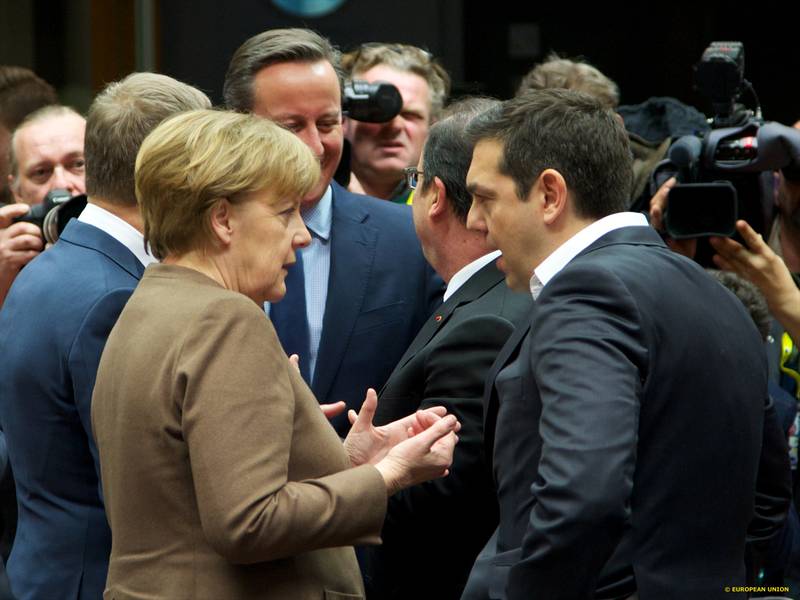 How convenient would it be if once again it turned out that the sole culprit for not dealing with the refugee crisis were Greece. But it is not. And it is very dangerous to go towards isolating it and even talking about "sacrificing" it in the name of the survival of Schengen like Slovak Prime Minister Robert Fico urged this week. In an interview for Hospodarske noviny on Monday he said that the point was reached when "Greece is likely to be sacrificed" for the good of the EU, The Financial Times reports. In the context of Athens' behaviour in the euro area such a statement would not have sounded worrying at all, but regarding the refugee crisis such a thesis is very dangerous. Furthermore, expelling Greece would not save Europe from the refugee influx.
How convenient would it be if once again it turned out that the sole culprit for not dealing with the refugee crisis were Greece. But it is not. And it is very dangerous to go towards isolating it and even talking about "sacrificing" it in the name of the survival of Schengen like Slovak Prime Minister Robert Fico urged this week. In an interview for Hospodarske noviny on Monday he said that the point was reached when "Greece is likely to be sacrificed" for the good of the EU, The Financial Times reports. In the context of Athens' behaviour in the euro area such a statement would not have sounded worrying at all, but regarding the refugee crisis such a thesis is very dangerous. Furthermore, expelling Greece would not save Europe from the refugee influx.
There is the chance a possible expulsion would force Greece to cease its efforts to hold the refugees in. And who does the EU rely on? On the small, corrupt former Yugoslav republic of Macedonia with the semi-recognised name and the overflowing with refugees and terrorist threats authoritarian Turkey, which is in conflict with Russia, and also with another corrupt state on the external border of the EU - Bulgaria, which the refugees are fleeing like the devil is chasing them, because they shoot there, refugees are being robbed, beaten, held in bad living conditions, and attitudes in the country are not less xenophobic than the ones in the Visegrad sector of the EU.
Schengen is not the euro area
There is an agreement on at least one thing in the EU and it is that the Union is in an existential crisis. The next step is to diagnose the problem correctly and see if it is solvable. So far the diagnosis is incorrect. The idea that Schengen is the euro area and vice-versa is being pushed at the institutional level. This idea was articulated for the first time by EC President Jean-Claude Juncker (Luxembourg, EPP) at the end of November in the European Parliament, when he stated that the common currency had no meaning if Schengen should fail. The aim of the statement was showing that the same efforts must be put up for Schengen as were put up to save the euro area. Actually, the euro area and Schengen are the proof that a multi-speed EU is impossible, even though the member states' leaders officially wrote down such a statement at the bottom of the deal with Great Britain in February.
There are many differences between the euro area and the Schengen space. Countries of the euro area have one stake - the protection of financial stability. They are united by the common currency; integration between them is much deeper. The Schengen group is far more diverse. There are members of the euro area participating in it, as well as states, which do not share the common currency, and even states, which are not EU members. There are integration pockets in Schengen. This makes the stakes multiple, even excluding each other. There were disagreements in the euro area, mostly on the implemented fiscal policy, but the financial markets' pressure forced in the austerity approach. Protecting the common 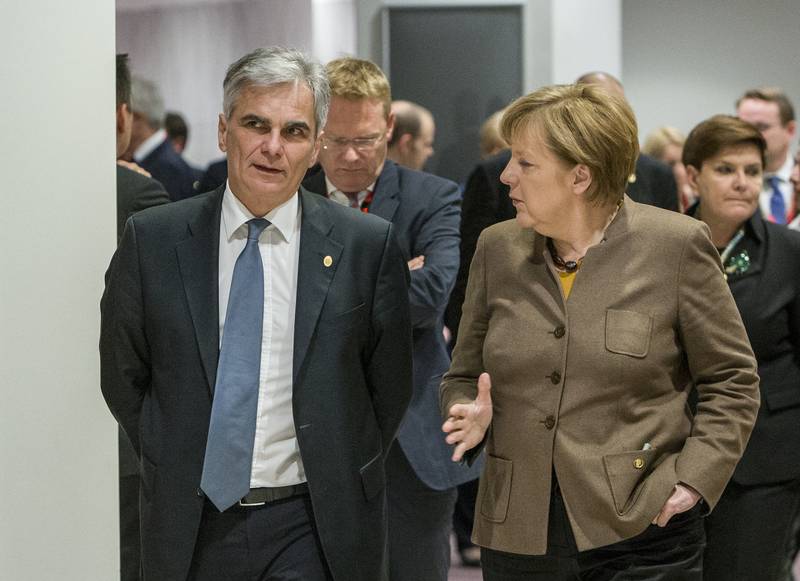 currency was the leading purpose to a point of making a number of compromises with Greece, which left heavy wounds both in Greece and the euro area countries, most of all Germany.
currency was the leading purpose to a point of making a number of compromises with Greece, which left heavy wounds both in Greece and the euro area countries, most of all Germany.
The situation in Schengen is totally different. The Greek government cannot be blamed for the refugee situation. The country is being subjected to huge refugee pressure, while its geography makes protecting the external border extremely difficult German Chancellor Angela Merkel also made a clear distinction - we did not put in all that effort to save the remaining of Greece in the euro area just to leave it now to deal with the refugee problem on its own, she said recently. There are attempts being made for common European solutions, but they get boycotted systematically by the Visegrad four. Under the leadership of Hungarian PM Viktor Orbán, the group resists the mandatory quotas for fair distribution of the refugees among the 28 member states, excluding the ones who have opted out of participation in the treaties. Such a state is Ireland, but it notified the Commission that it will participate in the quota distribution regardless.
To make the situation even more difficult, Viktor Orbán announced that he would hold a referendum against the refugee quotas. This means more delays in the already slow moving distribution of the agreed 160 000 refugees. Less than 400 have been relocated so far. Greece also attempted to twist the euro area’s arm last year when it organised the referendum on the third bailout package, but was shown a red card.
Along the Macedonian-Greek border tension is already building. There are clashes. Greece’s capacity is overfilled. The country does not manage to deal fast enough with building new shelters and refugee processing stations, despite the EC promising to let it have more money. Besides, spring is coming. Here the main factor is time. And the problem within the EU is ideological. While the old members, led by Germany, see the solution in common coordinated actions and sharing the burden in solidarity, Eastern European countries want the problem to just disappear, thinking this can happen by closing the external border of the EU. They give no answer to the question what to do with the refugees. They do not care. They threaten the survival of the EU just as long as they are not forced to accept refugees. They demand a plan B.
Why cannot there be a plan B?
Plan A is based on joint efforts, collective responsibility and solidarity, international law, based on the morals from the euro area crisis. Priority number one in plan A is providing protection to the ones fleeing the horrors of war without endangering the stability of separate member states of the EU. Plan B wants what is impossible. Neither plan A, nor plan B, C, or D are possible without a fair sharing of the burden and without the development of common guidelines for the integration of refugees and stimulating them to stay at the relocation places, nor without a common vision on solving the conflict in Syria and especially on the role of Russia.
Even if the plan with Turkey works out, it is naïve to think that in exchange for a fistful of hard won European money Turkey will turn into a giant hotspot, which will take care of the healthcare, education, and work of millions fleeing war, while at the same time it has to fight the spillover of the conflict in Syria on its own territory. It is also naïve 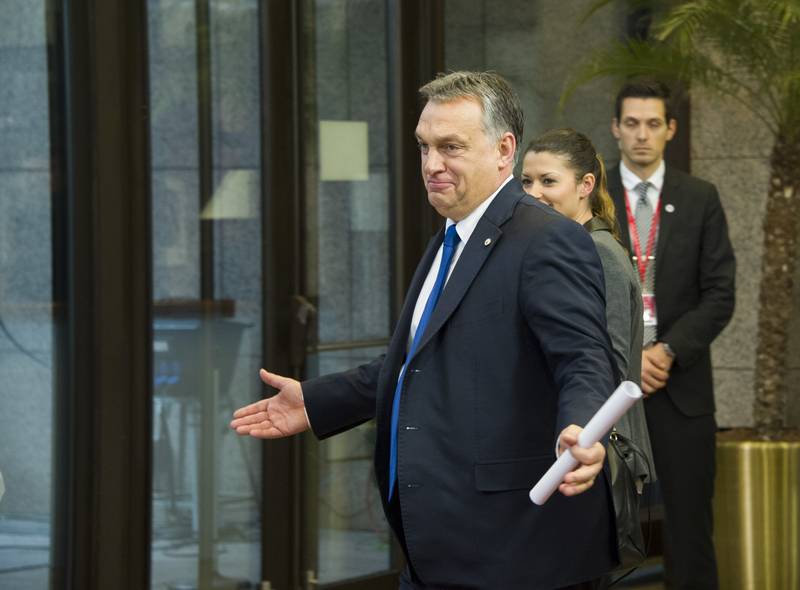 to think that with Putin’s Russia there could be a quick solution to the conflict in Syria, which is the main generator of refugee flows towards Europe.
to think that with Putin’s Russia there could be a quick solution to the conflict in Syria, which is the main generator of refugee flows towards Europe.
It is as naïve to think that Greece could turn into the second biggest hotspot after Turkey, in order to secure tranquillity for Orbán and electoral power to Fico. The Greek government has electorate too. It is even more naïve to think that closing the external borders and the building of national fences will secure long-term peace to the states that do it, or it would stop the flows. The solution is to control and fairly distribute the refugee waves, rather than developing balloons, like it is done at the moment. If you plug the Western Balkans route, the wave will burst elsewhere. The peace of Orbán, surrounded by walls is an illusion. The consequences are yet to come – some indirectly, others head on.
A series of mistakes
As much as it is unpleasant for populists, the culprit for the lack of solution to the problem is not just one. They are many. The EU made a series of mistakes, only worsening the situation until it went out of control. The Union lost months in repeating what was urgently agreed on in September, and even then just a drop in the ocean was agreed on. In an attempt to secure a temporary relief of the situation the German chancellor refused to implement the Schengen code. Good intentions, but with devastating results. Her lead was not followed. The EC initially applauded the decision, for at the time it seemed the correct and honourable one, but later started repeating the contradictory mantra that Schengen can only be saved if it is implemented and that Schengen is not dead. Along the Greek-Turkish border, however, it has collapsed because of Greece’s technical inability to process such an enormous number of refugees. The contradiction is set in the new measures, which the Commission presented in December, as it became clear during their discussions on Monday in the Civil Liberties and Justice Committee of the EP.
Romanian MEP Monica Macovei (EPP) presented her question whether the proposal for the formation of an agency for coastal and border guard aims to save Schengen, or the EU. In her words, the text keeps mentioning the EU in some sections and Schengen in others. Only Bulgaria, Romania, and Croatia are not Schengen members. The MEPs saw more shortcomings in the Commission’s drafts. The Schengen code was changed just a few years back. How long will the hastily proposed changes be valid for and should not more time be allocated, so a serious reform of this extremely important legislation is done. The Green MEP Ska Keller (Germany) asked the EC why was it in a hurry. Many criticised the idea that Frontex will be able to intervene in a member state without its consent.
Another mistake was that the division of destination-countries and transit-countries was tolerated for too long. This created a deceitful sync – transit countries got well organised in transferring the burden to the rich countries. Only Austria said “basta”. Austrian Chancellor Werner Faymann exploded during the February summit when he stated that Austria had been with wide open arms all the time over the last 25 years. It accepted refugees from the conflicts in former Yugoslavia, then it took in a huge number of Eastern Europeans after their countries joined the EU, and now it has to take in refugees from the Middle East, while at the same time other states are allowing themselves the luxury of saying “no”. The situation deteriorated further with the ripening of the time to solve the British question, because of which the EU made a huge step backwards in the name of Great Britain staying in the EU. This tempted other member states to ask for concessions, opt-outs, even putting their membership to a referendum.
It is a mistake as well to claim that national solutions are sought for lack of common ones. It is the other way around – there are no common solutions because national ones are sought.
The EU works piecemeal
This is another big mistake. At the moment, the Union has to find solutions to several large crises simultaneously. The elected approach, however, is chaotic. The smallest common denominator is sought, work is done in a hurry and piecemeal. This only leads to delaying the problems, not to solving them. The situation in the euro area clearly showed it – after the initial strong impulse, finishing the integration was abandoned. There are even more voices being heard for exceptions from the rules. Economic growth, however is insufficient and there are dark clouds brewing above the global economy. The refugee situation shows quite clearly that a multiple-speed EU will not work. The euro area is moving along its own orbit, there is no clarity whether the Schengen borders have priority or the EU external ones, Great Britain has one and a half legs out. The current situation is a clear illustration of the consequences of less Europe.
If anyone claims the opposite, they are surely not seeing the big picture well. As The Financial Times recently wrote, the EU is facing a dilemma – choose Orbán or Merkel. The Greek newspaper Kathimerini goes even further by saying Europe is Trumpificating. This is even more valid today, when Trump triumphed on Super Tuesday. The clash is truly ideological and very, very dangerous. Today you ask that Greece exits, whose turn is it tomorrow? For no single member state can deal on its own with reining in mobs of people, fleeing the hell of war. It is shameful that there are people in Europe, who have 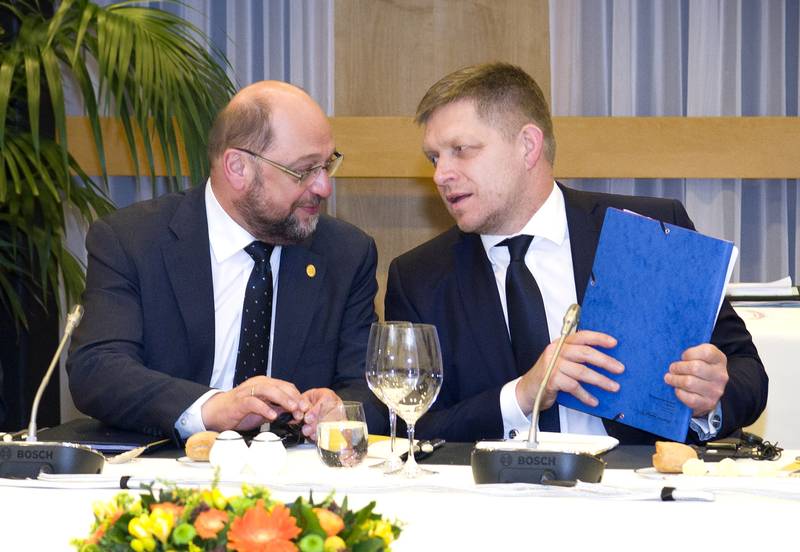 forgotten what this means. If someone needs to get a red card this time it is not Greece, but Hungary.
forgotten what this means. If someone needs to get a red card this time it is not Greece, but Hungary.
Even David Cameron with his agreed deal failed to stall the EU as hard as Viktor Orbán is doing. He not only boycotts European law, but even fails to share the European system of values. His referendum is way more dangerous than the one of Cameron. So, if someone needs to be kicked out of Schengen, it is him. Then the answer to the question are we protecting Schengen’s borders or the EU ones will come easily. It is also important, however, that we answer the question, set by MEPs – does border protection mean their closing and will the new measures, which are being proposed, remain valid one day after the crisis is gone? Questions, questions, and on the horizon – just Orbán, Putin, and Trump.
Translated by Stanimir Stoev
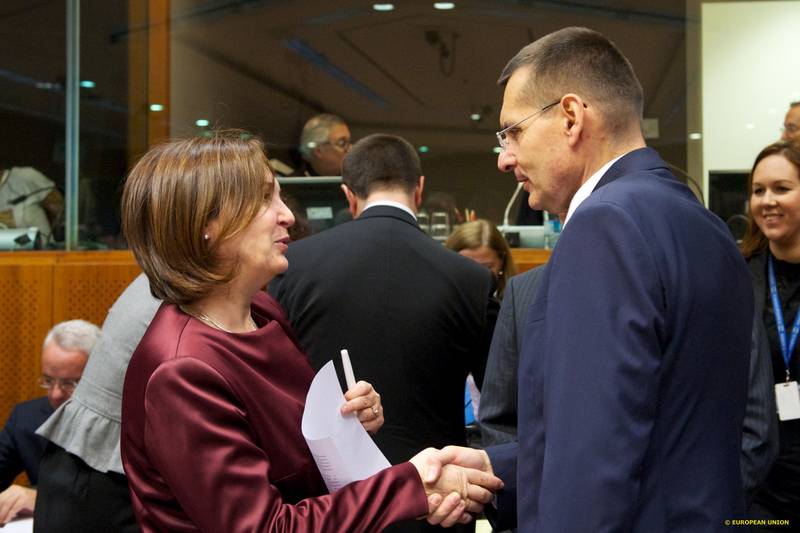 Rumyana Bachvarova, Petre Toba | © Council of the EU
Rumyana Bachvarova, Petre Toba | © Council of the EU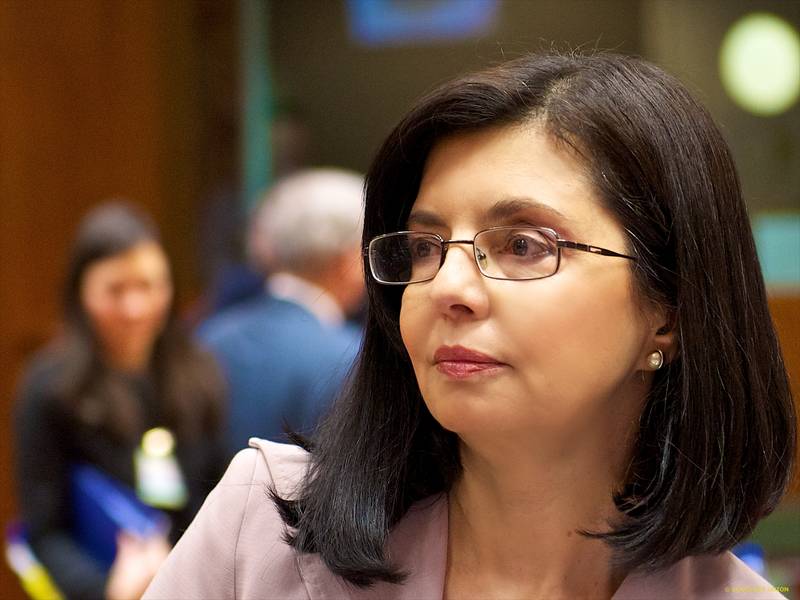 Meglena Kuneva | © Council of the EU
Meglena Kuneva | © Council of the EU Meglena Kuneva | © Council of the EU
Meglena Kuneva | © Council of the EU Angela Merkel, Emmanuel Macron | © Council of the EU
Angela Merkel, Emmanuel Macron | © Council of the EU Benoit Coeure | © Council of the EU
Benoit Coeure | © Council of the EU Pierre Moscovici | © Council of the EU
Pierre Moscovici | © Council of the EU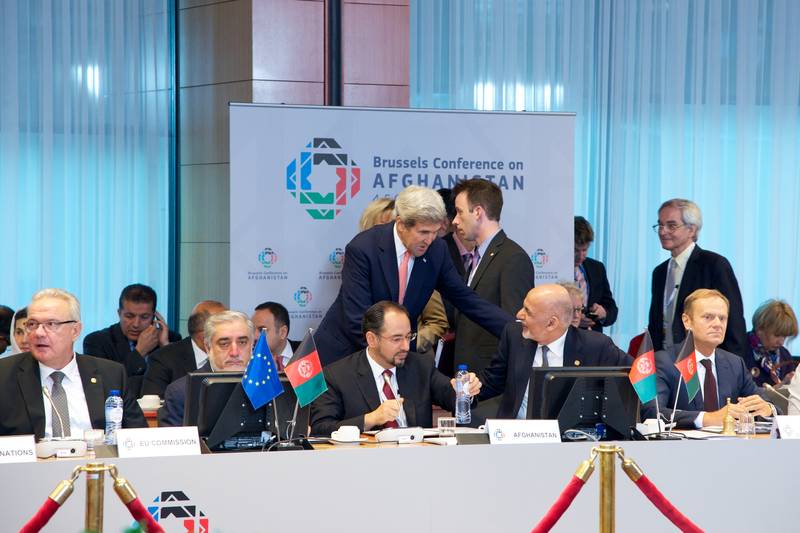 | © Council of the EU
| © Council of the EU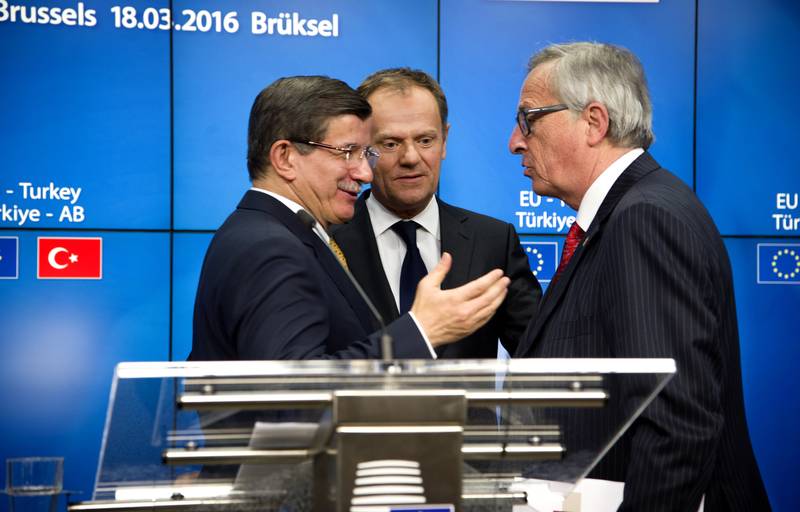 Davutoglu, Tusk, Juncker | © Council of the EU
Davutoglu, Tusk, Juncker | © Council of the EU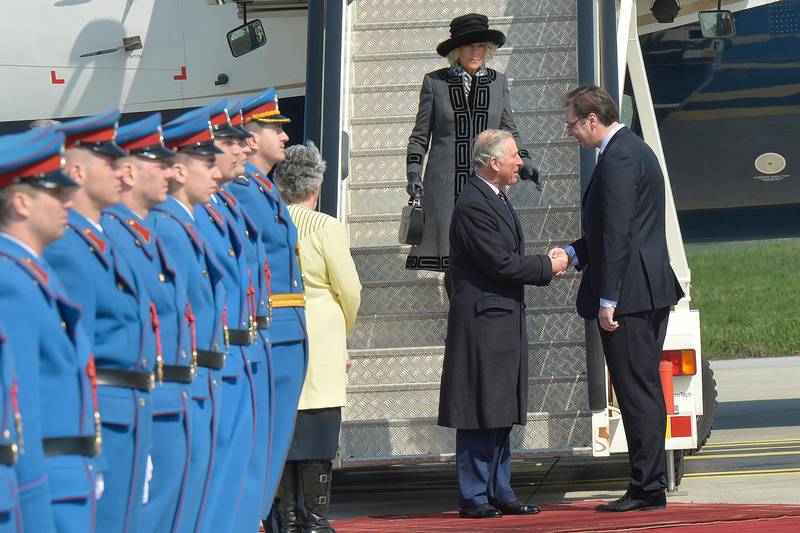 | © Vlada RS
| © Vlada RS